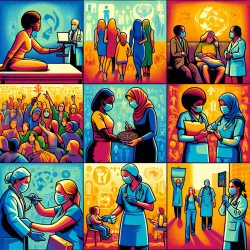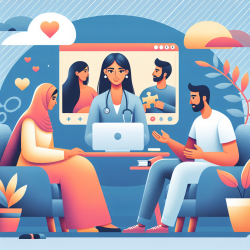Introduction
Female Genital Mutilation (FGM) is a critical issue affecting millions of girls and women worldwide. Despite global efforts to eradicate this practice, it remains prevalent in many regions. The World Health Organization (WHO) has developed guidelines to address the health complications of FGM and to support healthcare providers in their roles as advocates for human rights. This blog will explore how practitioners can implement these guidelines and encourage further research into this pressing issue.
Understanding the Human Rights Context
The WHO guidelines emphasize that FGM is not only a health issue but also a violation of human rights. It is crucial for healthcare providers to recognize FGM as a harmful practice that infringes on the rights of women and girls. International human rights treaties, such as the Convention on the Elimination of All Forms of Discrimination against Women (CEDAW) and the Convention on the Rights of the Child (CRC), provide a framework for understanding FGM as a violation of human rights. These treaties call for the abolition of practices that discriminate against women and harm children's health.
Key Guidelines for Healthcare Providers
- Quality Healthcare: Practitioners must provide quality healthcare to girls and women who have undergone FGM, recognizing it as a harmful practice.
- Prevention and Education: Healthcare providers should engage in primary prevention efforts and educate communities about the risks and human rights violations associated with FGM.
- Reject Medicalization: The medicalization of FGM, or its performance by healthcare providers, is never acceptable. It violates medical ethics and perpetuates the practice.
- Deinfibulation: Deinfibulation is recommended to prevent and treat complications associated with type III FGM. Adequate preoperative briefing and local anesthesia should be provided.
- Mental Health Support: Cognitive behavioral therapy (CBT) should be considered for those experiencing anxiety, depression, or PTSD due to FGM.
- Sexual Health Counseling: Sexual counseling is recommended to address sexual dysfunction in women living with FGM.
Encouraging Further Research
Healthcare providers are encouraged to engage in further research to understand the complexities of FGM and its impact on human rights. By exploring international human rights norms and standards, practitioners can better advocate for policies that protect women and girls. Research can also inform the development of training programs for healthcare providers, ensuring they are equipped to handle FGM-related complications sensitively and effectively.
Conclusion
FGM is a violation of human rights that requires a comprehensive approach involving healthcare providers, policymakers, and communities. By implementing the WHO guidelines and engaging in further research, practitioners can play a pivotal role in eradicating this practice and promoting gender equality. For more detailed information, practitioners are encouraged to read the original research paper: Gender equality and human rights approaches to female genital mutilation: a review of international human rights norms and standards.










